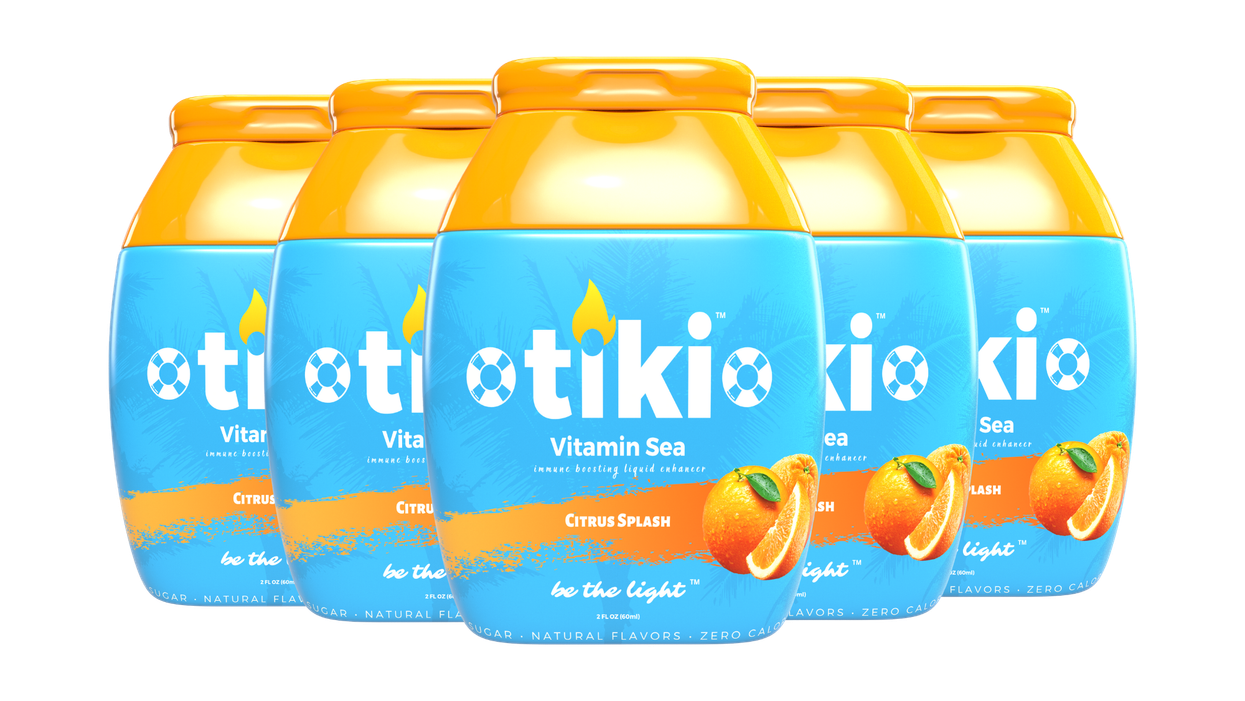Born on a Nurse’s Night Shift, Tiki Bev Aims To Be the Health-Conscious Water Enhancer

Stephanie Wilson is familiar with stress and exhaustion. The 30-year-old entrepreneur is also a full-time night nurse who spends much of her free time working on her fledgling company.
The idea for her startup came from her experience in health care, where workers are worn down after long days and nights, especially during the global pandemic.
"I've always had a hard time staying hydrated," she said "I know my co-workers have a hard time with that as well and I hated plain water."
Wilson saw an opportunity. She canvassed her colleagues and came up with Tiki Bev, a liquid enhancer aimed at frontline workers — and anyone who needs a boost. The startup soft-launched in October 2020, aiming to be the healthy, eco-conscious alternative to liquid water enhancers.
"Everyone needs an immunity boost. You know, as nurses, we never get enough sleep. And we always need more energy," she said.
Even with the pandemic, the global market for water enhancers was valued at $2.6 billion in 2020 by marketing analytics firm Research and Markets, which estimated that would grow $6 billion by 2027, as consumers focus on health-conscious and low-calorie beverages. Kraft and Dyla are big competitors in the space with products such as health-focused Stur and MiO, which advertises itself as a way to turn water into a "flavor-packed vessel of motivation."
Wilson said the more she started to look more into the big product names and common ingredients in many enhancers, the more she realized how bad some of them are for you. Aspartame, sucralose and polyethylene glycol are common in many products, she said. They're also entirely artificial.

Tiki Bev founder Stephanie Wilson
"A couple of these ingredients in the certain liquid enhancers are found in, like, paint thinners," Wilson said. Instead, she aims to make Tiki Bev the natural, health-conscious competition. The company uses stevia and promotes immunity, energy and sleep, she said.
At the moment, Tiki has one product available, a Vitamin C, orange flavor immunity booster. Two more — a passion fruit formula for boosting energy and a pear flavor enhancer to help consumers sleep — there's no exact launch date for those products, but Wilson wants to everyone keep an eye out.
Wilson thought of running Tiki Bev back in her native Ohio, but decided instead to stay in Los Angeles because of the city's proximity to the beach and its focus on healthy living and environmentalism — all of which she sees as key to Tiki's brand.
In February, Wilson found her way onto Amazon's "Two Minute Pitch" show, a competition show hosted by serial entrepreneur David Meltzer on which founders pitch their companies in order to win exposure and cash.
Tiki Bev won the $50,000 prize, which has helped get their product back into production after some investors backed down from their pre-seed funding round.
"It's great to say that you were on a competition show. David Meltzer is a big name and business," Wilson said, "It helps kind of show credibility that we were able to do that and bring home a win for such a small company, especially when we were competing against other big names, people that have been in business much longer than us."
Wilson was able to land a spot on Manos, a Google-backed accelerator aimed at Latino and Latina entrepreneurs, where she got some help learning how to start a business, structure the company and find investors.
Ultimately she wants to distribute the product in a biodegradable bottle and focus on becoming a full-time entrepreneur and solve the problem of her original customers.
"Nursing is a stressful job and if Tiki can help boost your vitamin intake to help you stay healthy, keep you energized, or help you fall asleep after a stressful shift, we have done our job."



 Image Source: Skyryse
Image Source: Skyryse
 Image Source: Northwood Space
Image Source: Northwood Space